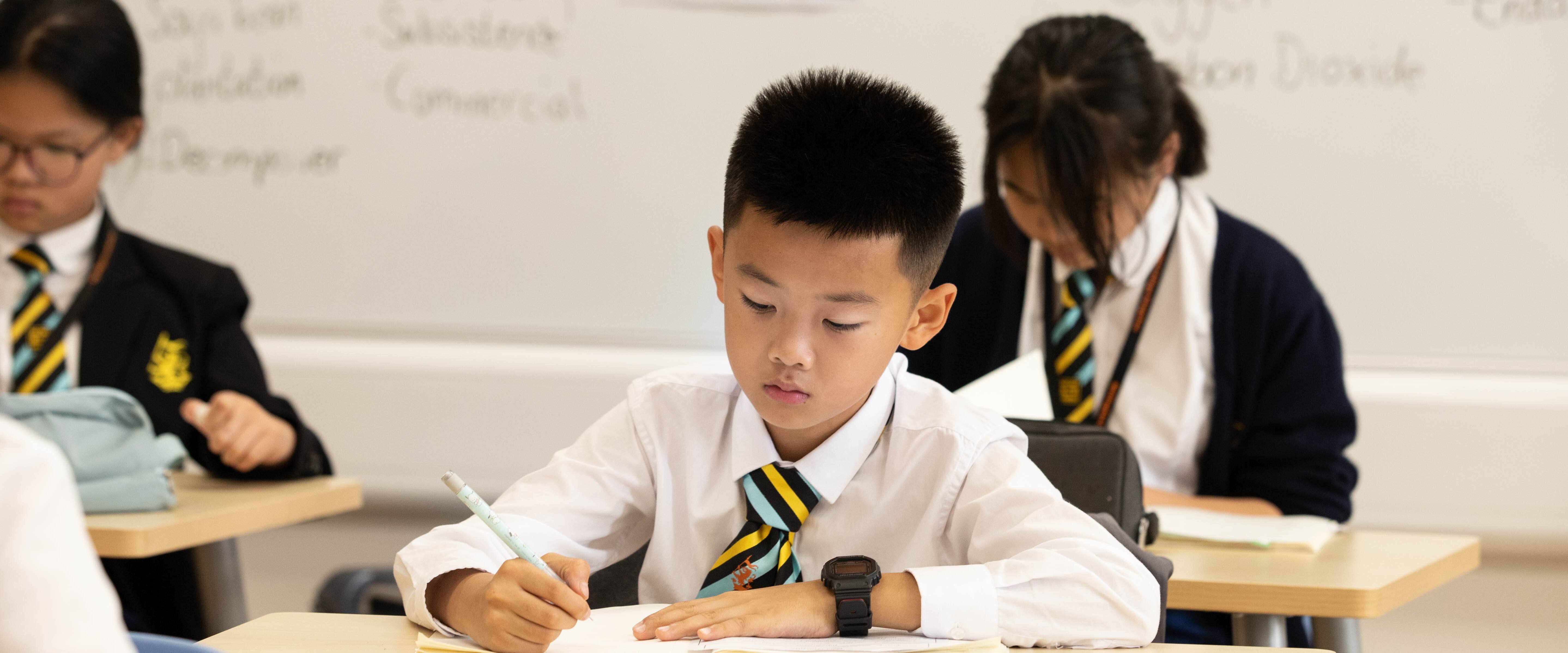
It is stated in the Intrigues of the Warring States, a collection of stories from the Warring States period, that “Past experience, if not forgotten, is a guide for the future.” Victor Hugo, a French Romantic writer and politician, wrote, “What is history? An echo of the past in the future; a reflex from the future on the past.” These quotes demonstrate the significance of learning history and cultural heritage. At Hiba, we want our pupils to grow into global citizens with a deep love for their families and country and an understanding of China’s history. Learning history through a traditional linear curriculum is conducive to nurturing interest; therefore, the Chinese Social Studies (CSS) team at Hiba has adopted project-based teaching to engage our pupils in vivid projects to learn Chinese history, where history learning goes beyond schoolbooks and develops pupils’ cultural identity.
Since the start of Hiba School Hangzhou, Hiba pupils have traversed back into the Song Dynasty, held the Song exhibitions, and learned about Chinese history through a national treasure exhibition. In addition, the CSS team has organised Historic Artefacts – Witnessing 100 Years’ History of China this year. What was this activity about? What positive influence did it exert on our pupils? How did the pupils and their parents feel about this project? Let us follow the lead of Lynn Li, Head of Social Studies, to go on a journey into the last century.
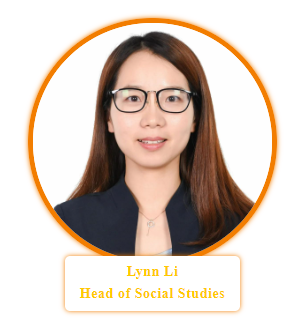
History happens not only through reforms in imperial palaces; it happens in our mundane life. It is not all about the significant political changes but about every aspect of economic, cultural, and social life. What individuals and families remember, the nation and country remember. That is why the old items at one’s home bear witness to the experiences of a nation.
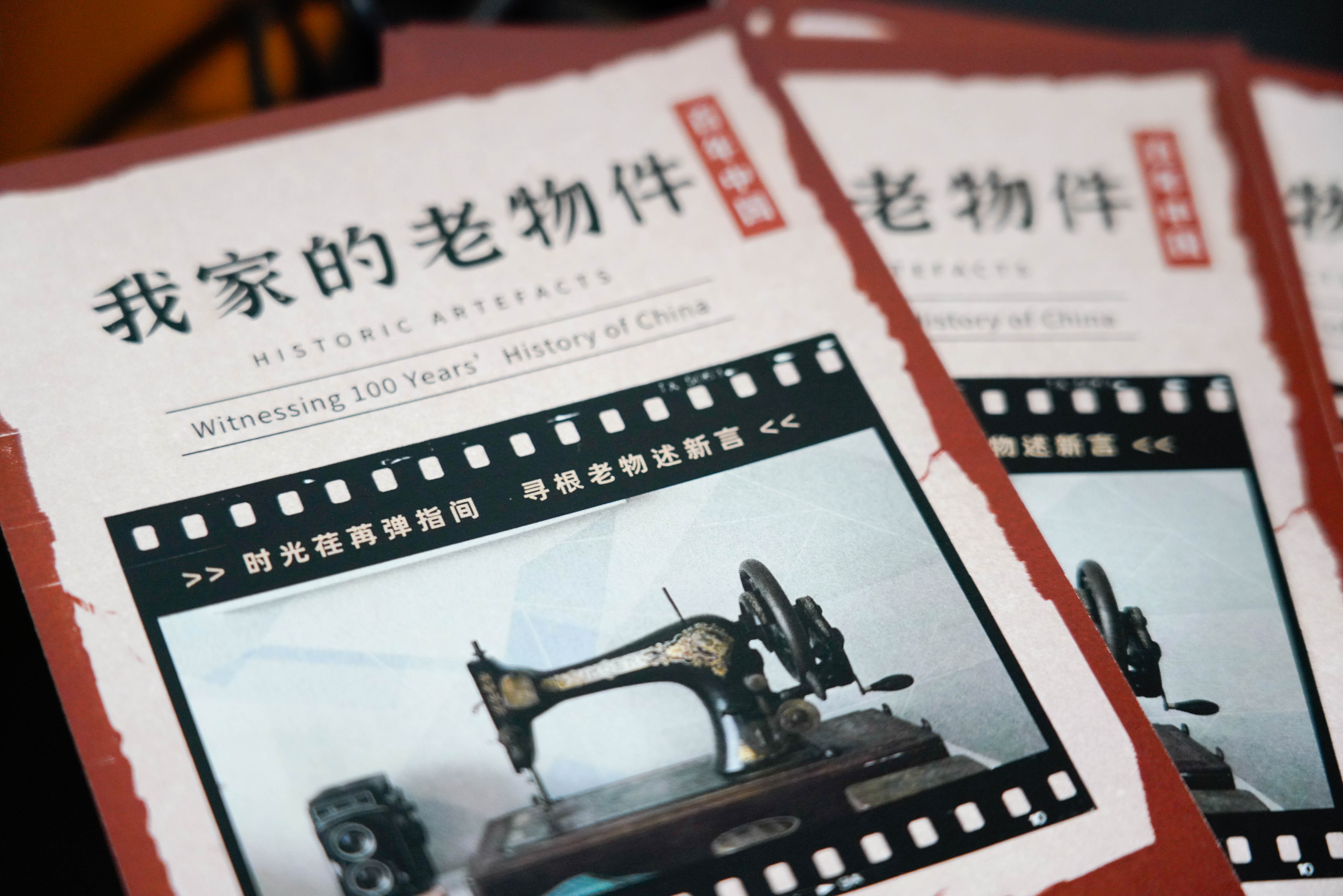
Learning history at Hiba is never a tedious process of cramming textbooks or reviewing test papers. This year, we launched an inspiring social studies project named Finding the old items, where pupils found some old articles from their homes to show the vicissitudes of history and learned the otherwise hidden stories from their fathers and grandfathers.
When the project was first launched, many pupils said, “We don’t have any old items at our home.” As the project progressed, however, they managed to find more and more old items from their home: food stamps, coins, stamp albums, diaries, textbooks, paraffin lamps, jewellery, badges, and military overcoat – all were telling the history of the country from the May Fourth Movement. These seemingly insignificant items bring about their deep love for their motherland as they bear witness to the laughter and sorrow of generations and serve as a mirror to the development of Chinese history.
Pupils took turns presenting the old items they found at their homes and telling the stories behind them. Let us hear how our pupils feel about the activity.
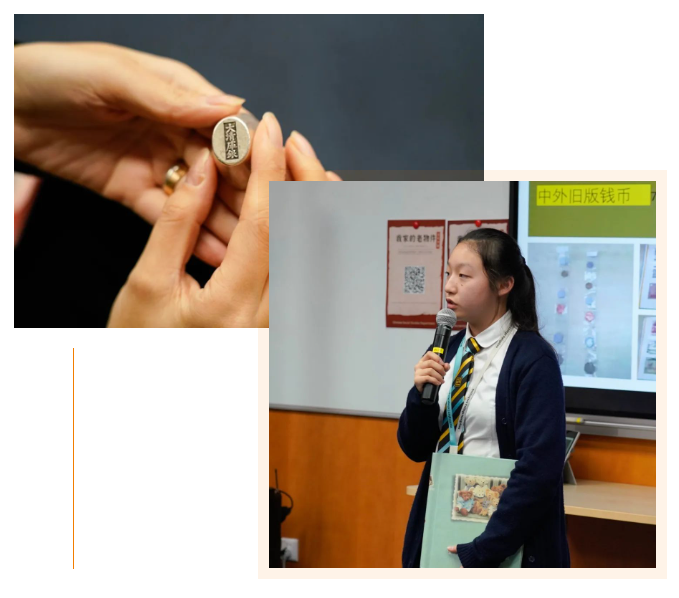
Frank C 8C
"The exhibited items bear witness to the progress and development in China from the eyes of people from all walks of life in the country. The presentation brought life to history while learning was no longer confined to written documents. It also brought many feelings to me – I was saddened, delighted, and moved. The item I presented was my grandfather’s backpack. He used to carry it when he helped build the metro in the 1960s and 1970s.
I talked to my grandfather and learned more about the history of our country. "
Karen Zh 8C
"It was such a memorable experience. First, I looked at various old items, such as food stamps, coins, handkerchiefs, pole scales, rings, rattan chairs, and silver dollars. Then, I presented my grandfather’s military hat. In my opinion, my grandfather is a legend. He joined the army when he was 17 and became a prosecutor at 30. When he almost reached 70, he was specially appointed to mediate civil disputes in court. What was most impressive was his sharing stories about the Hangzhou Jianqiao Airport. Grandpa said it was not just an airport but also one of the air battlefields during the Chinese People’s War of Resistance against Japanese Aggression. The airport is a carrier of the Jianqiao spirit – to calmly overcome challenge head-on and devote themselves to the country with loyalty and bravery. "
Alice M 8B
"In this project-based learning, our learning is more active and inspired. We worked well as a team and embraced the new challenges bravely. "
We invited parent representatives to attend the exhibition day. Pupils went on stage to present the old items from their homes and told stories carried by them.
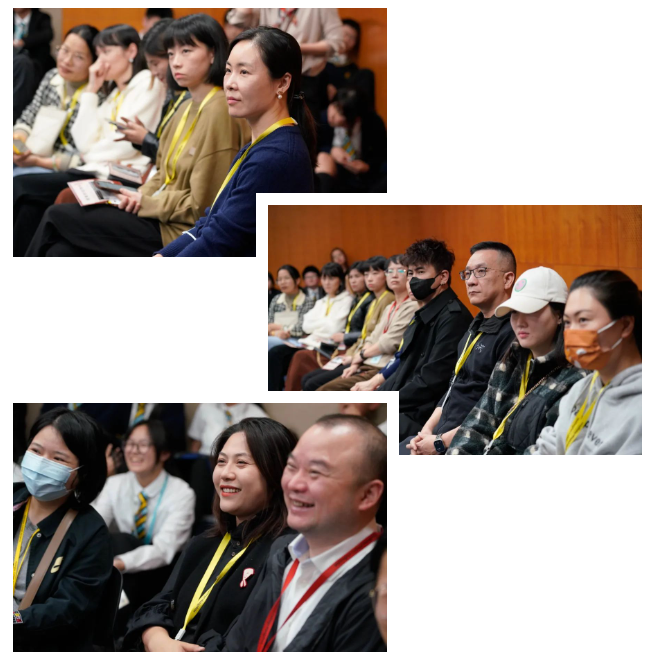
8A Oscar Q’s mum
"It effectively reflects China’s hundred years of history with the small old items from home. Children are highly engaged and find the fun in learning history. The presenters have different delivering styles; some are full of confidence, some are humorous, and some present with academic rigour. Watching them practise their public speaking skills and share their ideas, I felt deep contentment with their growth. It was also an interesting and informative activity that took me back to years ago. I am grateful for teachers’ support to our children for inspiring their interest in learning. "
7D Rock Zh’s mum from
"It allowed us to see the children’s learning status and attitude. Everyone took this task seriously. It was a rewarding team effort from teachers and pupils, from planning to implementation. Children learned to speak up and practised their ability to paraphrase and summarise. I think it is a meaningful activity. "
7D Tracy X’s mum
"I was surprised by this CSS activity. Every presenter was concentrating - confident, enthusiastic, passionate and brave. The result was excellent. From preparation to the final presentation, Tracey made the presentation slides, poster and script independently. It was a wonderful platform that improved the holistic development of our children. "
Time flies by. We use old items to tell the tale from before. CSS project inspires Hiba pupils to learn history, where their core literacy of research, implementation, historical thinking and language expression is extensively improved. Through such projects, history learning is no longer limited to textbooks but, rather, endowed with deeper meanings. It is also easier for pupils to feel the connection with history when seeing how the old items are linked to the lives of their fathers and grandfathers.
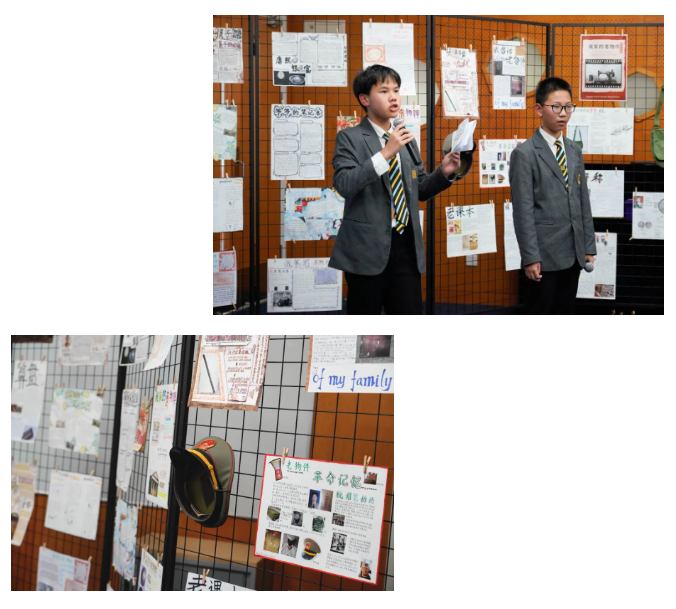
At Hiba, we follow a proud tradition and educate for the future. As we draw the curtain for this journey into the recent century, pupils were left with more to ponder. We hope our history learning will inspire the future, where our pupils will stand on a global stage with a deep love for their motherland. Our Chinese Social Studies lessons will help pupils to build the bridge between China and the rest of the world, become excellent international citizens and tell the story of China from a global perspective.